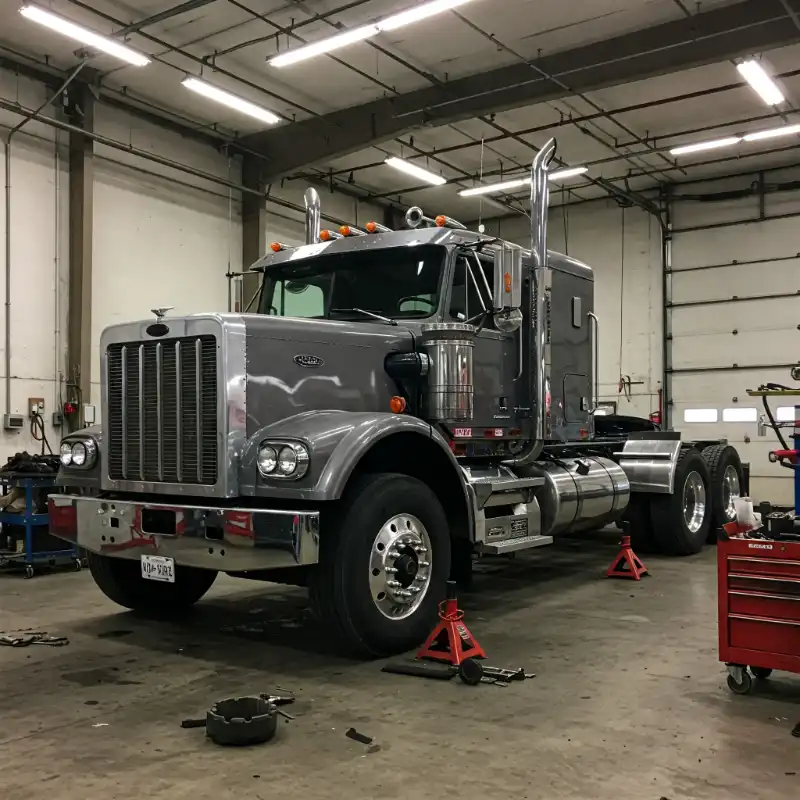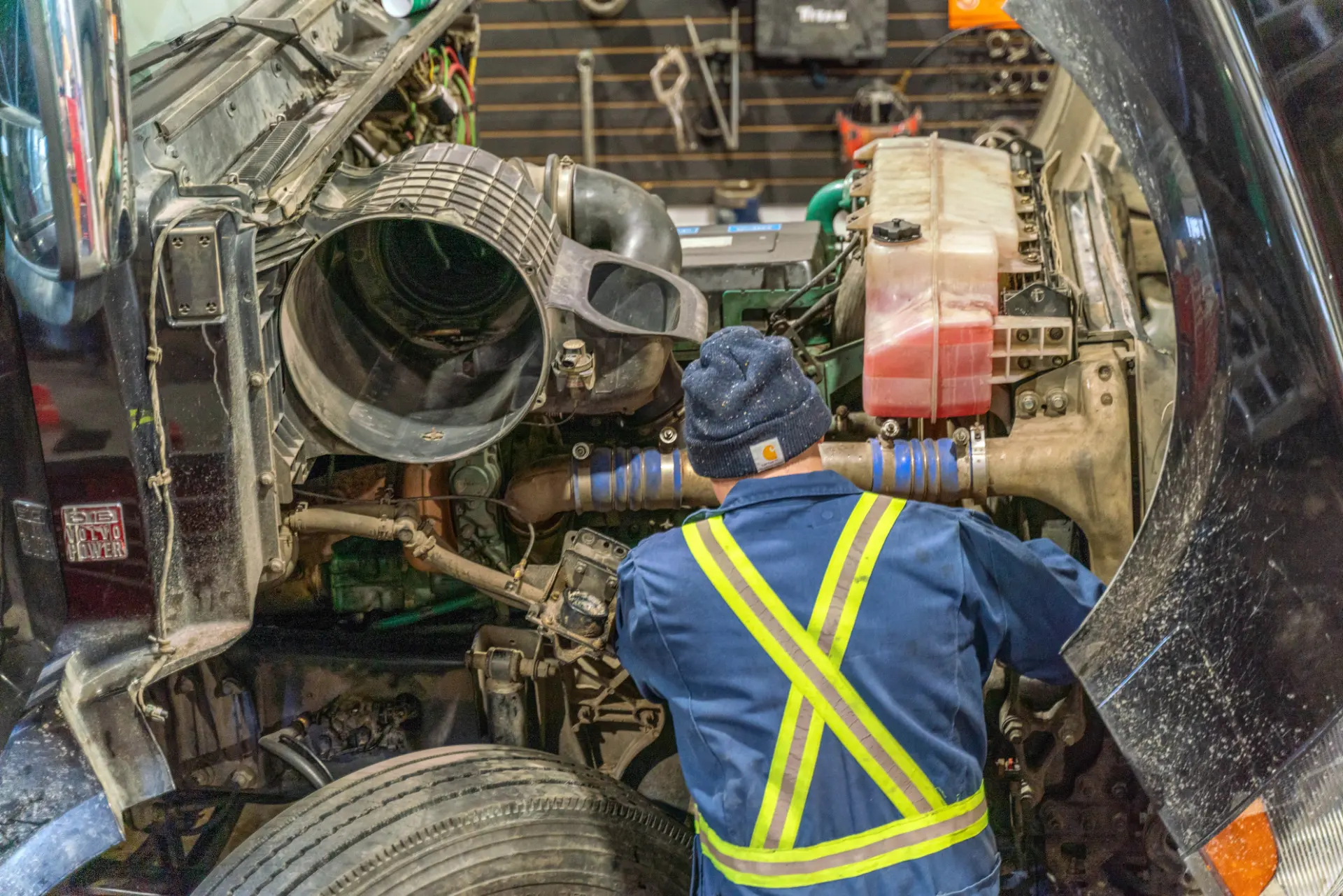Spring Driving Prep: What Your Car Needs After Winter
Prepare your car for spring with this essential post-winter maintenance guide. Learn about tire checks, brake inspections, fluid top-offs, and rust prevention.

Winter is tough on vehicles, and as the seasons shift, it's time to assess the damage and get your car road-ready for spring. The extreme cold, icy roads, and road salt buildup can cause hidden issues that, if left unchecked, could lead to costly repairs. With fluctuating temperatures and rainy conditions ahead, ensuring your vehicle is in peak condition is essential for both safety and performance.
Inspecting and Maintaining Your Tires
One of the first things to check after winter is your tires. Cold temperatures cause air pressure to drop, meaning they may be underinflated by the time spring rolls around. Driving on improperly inflated tires can lead to poor fuel efficiency, uneven tread wear, and even blowouts. Checking the pressure and inflating them to the manufacturer’s specifications is a simple but crucial step.
In addition to pressure, examining the tread depth is important. Winter driving can take a toll on tread, and if the depth is too low, your tires won’t provide adequate traction, especially in rainy conditions. Look for signs of uneven wear, which may indicate misalignment or suspension problems. Hitting potholes hidden under snow and ice can easily knock a vehicle out of alignment, leading to handling issues and excessive tire wear. If the car pulls to one side or the steering wheel vibrates, it may be time for an alignment check.
If you use winter tires, now is the time to swap them out for all-season or summer tires. Winter tires are made of a softer rubber compound designed for cold temperatures. When the weather warms up, they can wear down quickly and reduce fuel efficiency. Switching to the right set of tires for the season improves performance and longevity.
Checking Brakes and Suspension
Harsh winter conditions put extra strain on your braking system. Salt, slush, and moisture can lead to rust buildup on brake components, potentially affecting stopping power. Listening to squeaking or grinding noises when braking is a good indicator that brake drums or slack adjusters need attention. If the brake pedal feels soft or spongy, air or moisture may have entered the brake lines, which requires immediate service.
Suspension systems also take a beating from winter driving. Potholes and rough road conditions can damage shocks and struts, leading to a rough ride and decreased stability. If the vehicle bounces excessively after hitting a bump or feels unstable around turns, the suspension may need servicing. For trucks with air suspension systems, check your airbags for damages as they are the most susceptible to issues after winter.
Fluids and Filters
After months of exposure to freezing temperatures, it’s critical to check and top off all essential fluids. Engine oil should be inspected for any signs of sludge or contamination. Cold weather can cause condensation to build up in the oil, reducing its effectiveness. If it has been a while since the last oil change, now is the perfect time to replace it with fresh oil suited for warmer temperatures.
Coolant Fluids
Coolant should also be checked to ensure it is at the correct level and free of debris. Winter driving can put extra stress on the cooling system, and any leaks or low levels can lead to overheating as temperatures rise. Windshield washer fluid often runs low due to frequent use during winter, so topping it off with a summer formula designed to handle bugs and road grime will help maintain visibility.
Transmission Fluid
Transmission and brake fluid should be inspected as well. Contaminated or low brake fluid can affect braking performance, while old transmission fluid can cause shifting issues. Power steering fluid, if applicable, should be checked for proper levels and clarity.
Keeping Filters Clean
Filters also play a key role in keeping the vehicle running smoothly. The engine air filter can become clogged with dirt and debris from winter driving, reducing fuel efficiency and performance. A quick inspection and replacement, if necessary, will ensure optimal airflow. The cabin air filter should also be checked, as it can collect dust, pollen, and contaminants. A clean filter improves air quality inside the vehicle and enhances the efficiency of the heating and cooling system.
Battery Health and Electrical System Check
Cold temperatures reduce battery efficiency, and many drivers experience battery-related issues after winter. Testing the battery’s voltage and checking for corrosion on the terminals ensures it is in good condition. If the battery is more than three years old, it may be wise to have it professionally tested to determine if it needs replacement.
The alternator and starter should also be checked to ensure they are functioning correctly. Dimming headlights, slow cranking when starting the engine, or warning lights on the dashboard could indicate electrical issues that need to be addressed. Inspecting all exterior and interior lights, including brake lights and turn signals, helps ensure visibility and compliance with road safety regulations.
Underbody Cleaning and Rust Prevention
Winter roads are treated with salt and de-icing chemicals, which can accelerate rust and corrosion, especially on the undercarriage. Even if the vehicle appears clean on the surface, salt residue may still be clinging to metal components underneath. A thorough underbody wash helps remove any lingering salt and prevents long-term damage.
Inspecting for rust spots or early signs of corrosion is also essential. Areas around wheel wells, door sills, and exhaust components are particularly vulnerable. Applying a rust inhibitor or protective coating can help prevent further deterioration.
Air Conditioning and Climate Control System
With warmer weather approaching, ensuring the air conditioning system is working properly is crucial. Running the A/C and checking for weak airflow or unusual smells can indicate problems with the system. If the air isn’t blowing cold, refrigerant levels may be low, or there could be an issue with the compressor.
A professional inspection can help diagnose and resolve any concerns before the heat of summer arrives. Checking the defroster function is also important. While it may not be needed as frequently in spring, a malfunctioning defroster can make driving dangerous on humid or rainy days when windows fog up.
Windshield Wipers and Visibility
Wipers endure significant wear during winter, often scraping against ice and heavy snow. If they leave streaks or fail to clear the windshield properly, they should be replaced. Spring rain showers demand effective wipers, so installing a fresh set can improve visibility.
Inspecting the windshield for cracks or chips is equally important. Fluctuating temperatures can cause small cracks to expand, leading to more extensive damage. Addressing windshield damage early can prevent costly replacements later.
Spring Cleaning for a Fresh Start
Spring vehicle prep isn’t just about mechanical maintenance. Cleaning the interior and exterior removes the grime and buildup from winter. Vacuuming the carpets and seats, wiping down surfaces, and shampooing floor mats help eliminate road salt residue and allergens.
Washing and waxing the exterior not only enhances the vehicle’s appearance but also provides a protective barrier against UV rays and springtime debris. Cleaning out the trunk and removing any unnecessary weight can improve fuel efficiency.
Final Inspection and Road Test
After completing these essential maintenance tasks, taking the car for a test drive helps confirm everything is in order. Paying attention to handling, braking, and overall performance can reveal any lingering issues. Listening to unusual noises and feeling for vibrations ensures nothing has been overlooked.
With Fleetgo Heavy Duty Inc., you can start spring fresh by making sure your vehicle is in top shape allowing you to enjoy the season safely and confidently. Regular maintenance not only prevents breakdowns but also extends the life of your car, saving time and money in the long run. To learn more, read our article on the importance of air filters for peak engine performance.
More Articles

5 Common Issues Found During CVIP Inspections in Edmonton

The Biggest Fleet Repair Mistakes Business Owners Make

Tips For Building A Strong Partnership With A Heavy-duty Truck Fleet Repair Shop
Contact FleetGo
Get in touch with Fleetgo today to request a quote or to schedule in-shop or mobile services in Edmonton & the surrounding area! Our mobile service extends to a 100km radius around Edmonton for emergency roadside assistance & mobile truck & fleet repairs, including Sherwood Park, Spruce Grove, Fort Saskatchewan, St. Albert, Stony Plain, along Highway 16, & more!



